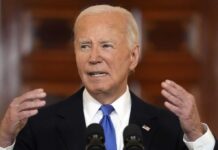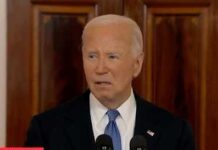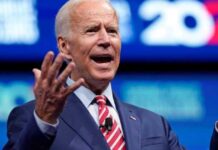
Taylor Swift’s fans, widely recognized as “Swifties,” are making headlines not just for their devotion to the pop icon but now for passing legislation. The bill now signed into law in Minnesota is the result of the debacle surrounding the sale of tickets for Swift’s “Eras Tour.”
On November 15, the presale event for Swift’s much-anticipated tour encountered severe technical issues on Ticketmaster’s platform, leading to crashes and extended waiting periods for millions of fans. Things got even worse when Ticketmaster canceled the general ticket sale, citing a shortage of available tickets, which triggered a widespread uproar among fans. Swift expressed her frustration over the ordeal, intensifying the reaction from her fanbase.
In response to the chaos, prominent figures like Democratic Representative Alexandria Ocasio-Cortez took to social media to guide upset fans on how to file complaints with the U.S. Department of Justice. Similarly, state attorneys general from states significant to Swift’s career, including Pennsylvania and Tennessee, have initiated investigations into the matter.
The law requires ticket sellers to disclose up front all fees connected with a ticket purchase and bans resellers from selling more than one copy of a ticket, according to the Associated Press.
The law only applies to events held in Minnesota, whether for concerts or other events.
The bill was crafted by Democratic Rep. Kelly Moller, a self-declared Swiftie who, in 2022, was caught in the mayhem that ensued when demand for Swift tickets spiked, bots added to the confusion, and Ticketmaster’s system crashed.
The response from Swift’s fans has extended beyond mere complaints. Spearheaded by New York-based professional Stephanie Aly, who has a background in community organizing, a group named Vigilante Legal was formed. This group comprises Swifties from various fields—law, public relations, cybersecurity—to lobby for policy changes regarding Ticketmaster. They are also providing resources and organizing tools to mobilize fans for these efforts.
In other words, “Swifties” are now lobbyists (only in America).
The involvement of Swift’s fans in these issues underscores a broader trend where fan communities leverage their numbers and dedication to effect change. This phenomenon is not new; historical precedents like Pearl Jam’s dispute with Ticketmaster in 1994 echo today’s events. More recently, Bruce Springsteen’s fans expressed discontent over high ticket prices, indicating ongoing concerns with the ticket selling giant’s practices.
Gwen Nisbett, a professor at the University of North Texas, discussed the role of parasocial relationships—where fans feel a one-sided bond with celebrities—in political and social mobilization. Nisbett’s research suggests that celebrity endorsements can significantly influence fans’ political behaviors, such as seeking out voting information and participating in elections.
The current uproar against Ticketmaster isn’t just coming from the Swift’s fanbase it’s larger than that. From letting aftermarket retailers buy and resale the tickets for a ridiculous amount to what they did during the Swift tour things are getting ridiculous. It’s about as ridiculous as Taylor Swift fans lobbying during an election and getting laws passed.






















